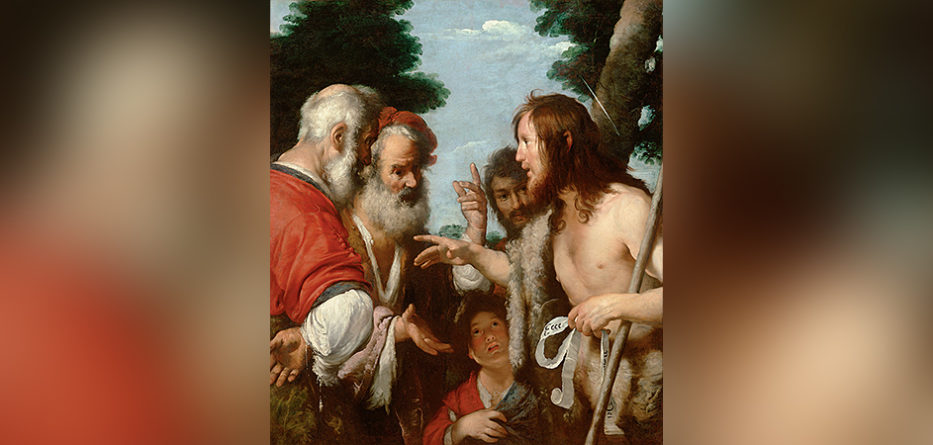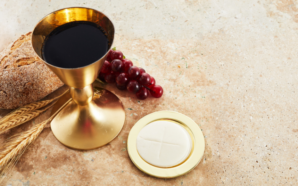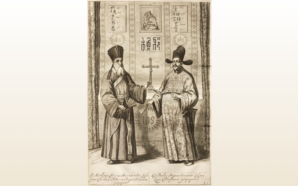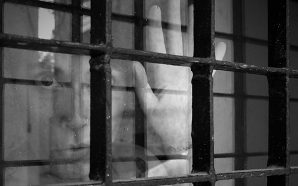Third Sunday of Advent
Readings: Zephaniah 3:14-18; Isaiah 12; Philippians 4:4-7; Luke 3:10-18
12 December 2021
“What must we do?” – Luke 3:10
We all know what it is to be ashamed of ourselves. We don’t have to live long before we step on someone’s heart. Whether it’s deliberate or accidental, we hurt other people. If we are sensitive, we will feel shame and regret.
The people listening to John the Baptist felt their own regret. As they listened to John, they started to take a look inside themselves and they were ashamed of what they saw. But all was not lost. They ask John how they should handle this shame? Notice that John didn’t leave them to wallow in their regret. He gave them some very practical instructions. If they were really ashamed of their selfishness and indifference to the needs of others, they were to do something about it—give away that spare tunic.
Now the picture becomes clear. We cannot get things straightened out between ourselves and God and at the same time go on using and abusing other people. Real repentance always carries with it a social dimension. The good news of the Gospel is to make us right with God and with others, and with ourselves. For some, the last part is the hardest. Today, too many people lead defeated lives. They live under a shadow of self-recrimination. They have very little respect for themselves. On the street, heads are down and eyes averted. Laughter is absent. Anger fills the air. Most of that comes, not from an attitude of selfishness, but of frustration and a dislike of self.
God is in the business of forgiveness. We have all failed and need to repent. This is the time to confess to God and make whatever restitution we can—then accept God’s forgiveness, forgive ourselves, and go out and live as God intended.
Lord, lead us to seek your forgiveness, accept it, and begin a process of correction. Amen.
Fr Sean Cullen
Artwork Spotlight
The Sermon of Saint John the Baptist – Bernado Strozzi (1581–1644)
“The Sermon of Saint John the Baptist” (c. 1642–1644) Oil on canvas, 135 x 120 cm. Inv. Nr. 256. Kunsthistorisches Museum, Vienna. Public Domain.
Born in Genoa, Bernado Strozzi studied painting briefly before entering the Capuchin monastery there in 1598. When his father died 10 years later, he was given permission to leave the monastery to care for his ailing mother and unmarried sister—earning their living with his paintings. He was summoned to Rome in 1625 by his Order, but soon fell out with his superiors apparently over his painting of secular objects. He was imprisoned for this and then turned his back on religious life.
He relocated to Venice in 1630, and there must have headed a large workshop, considering the many paintings he produced. In his later years, he was strongly influenced by the works of Rubens, Van Dyck and Veronese. After a commission to paint a portrait of the now-famous music composer, Claudio Monteverdi, his fame grew. The Doge of Venice and the Catholic cardinal and patriarch of Venice became his patrons. He died in Venice in 1644 at the age of 63.
Strozzi’s style is characterised by rich and bright colours, dramatic use of light, and a special emphasis on the body language of his characters. This is most obvious in his work we are studying today: The Sermon of Saint John the Baptist, which now hangs in Vienna. John is explaining his mission to the priests and Levites sent from Jerusalem who eagerly asked him about his task. John is characterised by the camel skin draped over his slender body, and the band he holds in his left hand containing the words “Ecce (Agnus) Dei”—behold the Lamb of God who takes away the sins of the world.
John stands in front of a small group of listeners. The clear difference in their ages alludes to the fact that the Baptist’s mission is directed to all. The hand gestures show that the discussion is quite vigorous, and the empty space in the centre is meant to include the viewer.
“What must we do?” (Lk 3:10) the people ask John. They will ask the same question of St Peter on the day of Pentecost (cf. Acts 2:37). John does not demand a vigorous program of life—sackcloth and ashes, offering sacrifice, fleeing into the desert, or even imitating his own lifestyle. Instead, he suggests a genuine concern for others! This, of course, will be central to Jesus’ teaching. Speaking to the crowd before him—to the tax gatherers and soldiers —John’s message was to give up all forms of extortion, blackmail, intimidation, and instead begin sharing with the needy. There was always a temptation for the tax gatherers and the soldiers to augment their pay through extortion.
John then changes tone and begins to speak about the Messiah “standing among you, unknown to you” (Jn 1:26) the strap of whose sandals John says he is unfit to undo. This was a task considered so menial that Jewish slaves were exempt from it. Talk of Christ separating wheat and chaff speaks of a coming judgment. Now, these were seemingly good people John is addressing, but there is a message here for all of us. Even good people must sometimes be faced with radical choices, with no time for half measures. Simply being children of Abraham (or Catholic, or members of this group or that) is not enough. John tells the crowd, and especially the tax gatherers and soldiers, that they must practise justice, for love must be based on justice. Mindsets have to change. “Jesus cannot be simply added onto the life we had before we met him” (the late Bishop Geoffrey Robinson, The Gospel of Luke).
John is not asking for instant perfection, just to take the first steps. We must learn sensitivity towards people who are still groping their way, rather than demand they accept the whole package immediately. Our sensitivity may indeed lead them eventually to God and the Church.
Mgr Graham Schmitzer
Fr Sean Cullen is the parish priest of Corpus Christi Catholic Parish in Mittagong-Bowral and the administrator of Holy Family Catholic Parish in Ingleburn. He was ordained in 1984 and has served in a number of parishes in the Diocese of Wollongong. Over the years, he has undertaken various diocesan roles including vocations director, master of ceremonies, chair of the Diocesan Liturgical Commission and member of the Council of Priests. He is currently the diocesan episcopal vicar for clergy.
Monsignor Graham Schmitzer recently retired as the parish priest at Immaculate Conception Parish in Unanderra, NSW. He was ordained in 1969 and has served in many parishes in the Diocese of Wollongong. He was also chancellor and secretary to Bishop William Murray for 13 years. He grew up in Port Macquarie and was educated by the Sisters of St Joseph of Lochinvar. For two years he worked for the Department of Attorney General and Justice before entering St Columba’s College, Springwood, in 1962. Fr Graham loves travelling and has visited many of the major art galleries in Europe.
With thanks to the Diocese of Wollongong who have supplied the weekly Advent and Christmas 2021 reflections from their publication, Blessed – Advent & Christmas Daily Reflections 2021.






